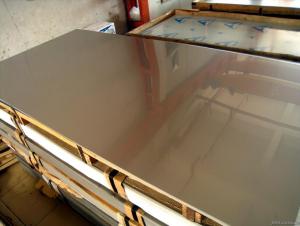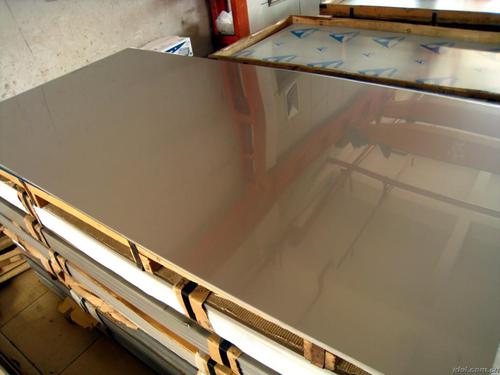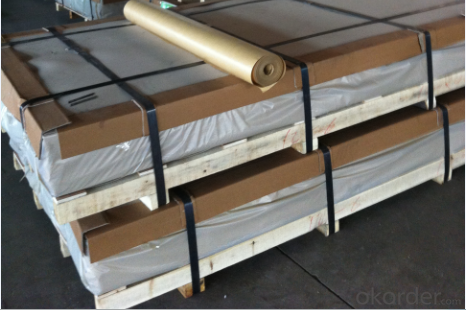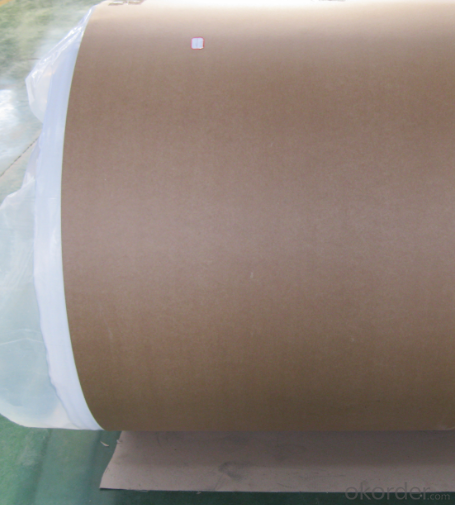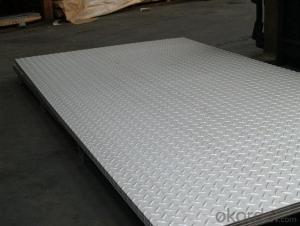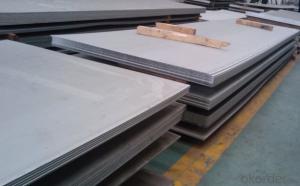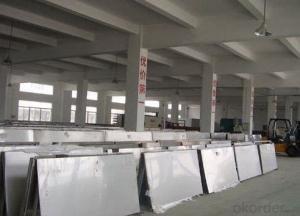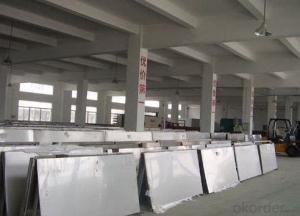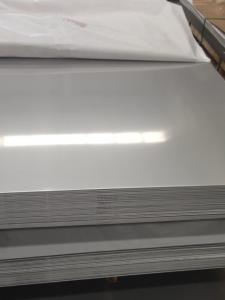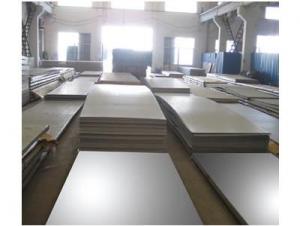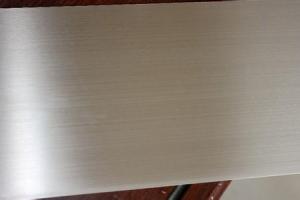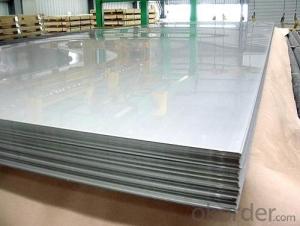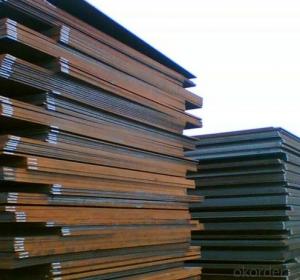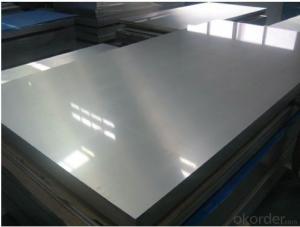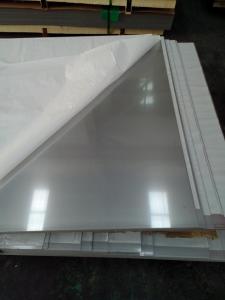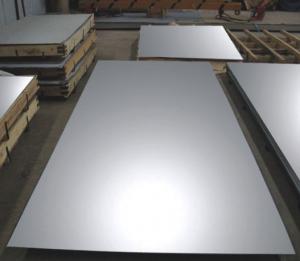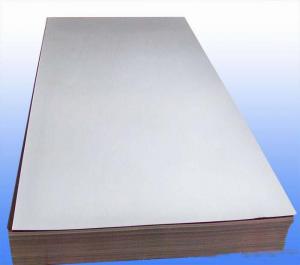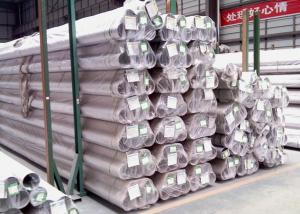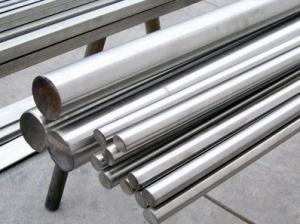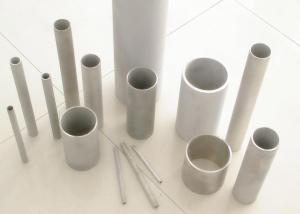Stainless Steel Slab And Sheet And Plate
- Loading Port:
- Shanghai
- Payment Terms:
- TT or LC
- Min Order Qty:
- 5 m.t.
- Supply Capability:
- 4000 m.t./month
OKorder Service Pledge
OKorder Financial Service
You Might Also Like
1.Structure of Product Description
SS SHEET, SS PLATE, SS SLAB are our best-selling productions, with very cheapest price and of course best-quality. if you are interested in it, please feel free to contact me.
application: construction field and decoration field, etc. There are many different grades, such as: 200 series, 300 series, 400 series, 900series, etc. The detailed grade are as follows: 201, 202, 301, 304, 316, 410, 420, 430, etc.
The surface is including 2B, BA, Mirror Finish, Checkered, etc.
2. Main features of the product
a. Competitive price
b. Frist-Class Service.
c. Shortest service.
3. Image.
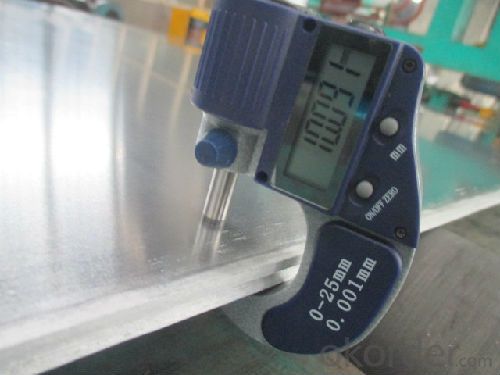
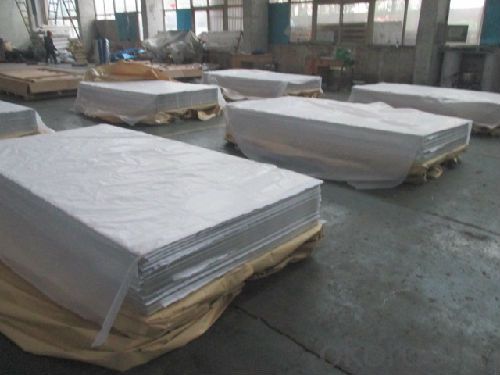
4. Product detailed sizes:
1000mm*2000mm, 1219mm*2438mm,1220mm*2440mm, 1250mm*2500mm,1500mm*3000mm, etc.
5. FAQ:
What is the quality standard?
---Usually our standard is GB3880-2006 or else.
What is the width range?
---It is from 1000mm to 2500mm, etc.
What is the length range?
---It is from 2000mm to 6000mm, etc.
What is the MOQ for your products yet?
---Normally it is around 3 tons/each size.
How many tons did you export in one year?
---Normally it is around 9000 tons totally.
Where is your client from?
---Normally it is from Japan, USA, ENGLISH, SINGAPORE, ETC.
What is your mainly products?
---Normally they are stainless steel sheet, stainless steel coil, stainless steel checkered sheet, stainless steel mirror finished sheet, color coated stainless steel sheet, etc.
- Q: Several processing techniques of colored stainless steel
- Etched series, etched images, visible pictures. After etching, the color or color can be etched and etched. The color stainless steel etching is made by etching various patterns on the surface of the material by chemical method. The 8K mirror panel or drawing plate plate, etching treatment, on the surface of the deep processing, can be partial and local lines, drawing, inlaid with gold and titanium and other kinds of complex process, realize the pattern of light and colorful effect. Etching stainless steel including color stainless steel etching, a variety of patterns, for the selection of color: titanium black (Hei Tai), sky blue, titanium gold, sapphire blue, brown, brown, purple, bronze, green bronze, champagne gold, rose gold, purple, white, green, green, suitable for: star hotel KTV, a large shopping mall, senior entertainment etc.. Can also be customized according to customer drawings and requirements, but the need for template fees.
- Q: How do you attach stainless steel sheets to a wall?
- To attach stainless steel sheets to a wall, there are a few common methods you can consider: 1. Adhesive: Using a high-strength construction adhesive specifically designed for metal bonding, apply it to the backside of the stainless steel sheet. Press the sheet firmly against the wall and hold it in place until the adhesive cures. This method is suitable for smaller, lightweight stainless steel sheets. 2. Screw fasteners: Drill holes through the stainless steel sheet and into the wall at regular intervals. Use stainless steel screws that are appropriate for the thickness of the sheet and the wall material. Insert the screws into the holes and tighten them until the sheet is securely attached to the wall. This method works well for larger and heavier stainless steel sheets. 3. Magnetic mounting: If the stainless steel sheet is magnetizable, you can use magnets to attach it to a metal wall. Place strong magnets on the backside of the sheet, aligning them with the corresponding magnets on the wall. The magnets will hold the sheet in place, allowing for easy installation and removal. 4. Panel mounting systems: Some manufacturers offer panel mounting systems specifically designed for stainless steel sheets. These systems typically consist of brackets or clips that attach to the backside of the sheet and then hook onto a track or rail system mounted on the wall. This method provides a secure and visually appealing attachment solution. When attaching stainless steel sheets to a wall, it's important to ensure that the wall surface is clean, dry, and properly prepared. This will help optimize the adhesion and prevent any potential issues. Additionally, always follow the manufacturer's instructions and guidelines for the specific method or product you are using.
- Q: Can stainless steel sheets be used for wire mesh?
- Yes, stainless steel sheets can be used for wire mesh. Stainless steel is a versatile material that is commonly used in various applications due to its durability, corrosion resistance, and strength. When stainless steel sheets are processed into wire mesh, they can provide a strong and reliable mesh structure. Stainless steel wire mesh is often used in industries such as construction, agriculture, mining, and filtration, among others. It is known for its ability to withstand harsh environments, resist rust and corrosion, and maintain its structural integrity over time.
- Q: How do you determine the thickness of a stainless steel sheet?
- To determine the thickness of a stainless steel sheet, there are several methods you can employ. The most common and accurate way is to use a digital or analog caliper. This instrument allows you to measure the thickness of the sheet with high precision. Simply place the caliper jaws on opposite sides of the sheet and close them until they are snug against the surface. The measurement displayed on the caliper will indicate the thickness of the stainless steel sheet. Another method is to use a micrometer, which is similar to a caliper but provides even more precise measurements. With a micrometer, you can measure the thickness of the sheet by placing the jaws on the edge of the sheet and gently closing them until they touch. The measurement displayed on the micrometer will show you the thickness of the stainless steel sheet. If these instruments are not available, you can also determine the thickness of a stainless steel sheet by referring to its specifications or manufacturer's information. Stainless steel sheets usually come with a label or tag indicating the thickness, which can be easily read and verified. In some cases, you may need to estimate the thickness of a stainless steel sheet without any measuring tools. In such situations, you can compare the sheet to known reference materials of different thicknesses. By visually comparing the sheet to these references, you can make an educated guess about its thickness. However, this method is less accurate and should only be used as a last resort.
- Q: Can stainless steel sheets be cut to size?
- Yes, stainless steel sheets can be cut to size. Stainless steel sheets are versatile materials that can be easily customized to fit specific dimensions and requirements. They can be cut using various methods such as plasma cutting, laser cutting, or waterjet cutting. These processes allow for precise and accurate cuts, ensuring that the stainless steel sheet is cut to the desired size without compromising its integrity. Additionally, stainless steel is known for its durability and resistance to corrosion, making it an excellent choice for applications that require cutting and shaping.
- Q: Are stainless steel sheets good for pressure vessels?
- Yes, stainless steel sheets are commonly used for pressure vessels and are considered to be a good choice. Stainless steel offers excellent resistance to corrosion, high strength, and good mechanical properties, making it suitable for applications that require withstanding high pressures. Additionally, stainless steel has good heat resistance, which is important in pressure vessels where high temperatures may be encountered. It is also worth noting that stainless steel can be easily formed and welded, allowing for the fabrication of complex shapes and designs required for pressure vessel construction. Overall, stainless steel sheets are a preferred material for pressure vessels due to their durability, reliability, and ability to meet the demanding requirements of such applications.
- Q: Can stainless steel sheets be used for elevator ceiling panels?
- Yes, stainless steel sheets can be used for elevator ceiling panels. Stainless steel is a popular choice for elevator interiors due to its durability, aesthetic appeal, and ease of maintenance. Stainless steel sheets offer a sleek and modern look to elevator ceilings, and they are resistant to corrosion, stains, and scratches. Additionally, stainless steel is hygienic and can be easily cleaned, making it a suitable material for elevator ceilings, where cleanliness and hygiene are important factors.
- Q: How do you prevent pitting corrosion on stainless steel sheets?
- To prevent pitting corrosion on stainless steel sheets, it is important to maintain a clean and dry surface, avoid exposure to corrosive environments or chemicals, and promptly clean off any contaminants or deposits. Additionally, applying a protective coating or passivation treatment can help enhance the corrosion resistance of the stainless steel sheets. Regular inspections and maintenance are also crucial to detect and address any signs of pitting corrosion early on.
- Q: Can stainless steel sheets be used for architectural purposes?
- Yes, stainless steel sheets can be used for architectural purposes. This material is highly versatile and offers excellent durability, corrosion resistance, and aesthetic appeal, making it a popular choice for architectural applications such as facades, cladding, roofing, and decorative features. Stainless steel sheets can be shaped, formed, and finished to meet various design requirements, making them suitable for both functional and decorative architectural elements.
- Q: How do you prevent intergranular corrosion in stainless steel sheets?
- Intergranular corrosion in stainless steel sheets can be prevented through various methods such as proper selection of stainless steel grade, heat treatment, and appropriate welding techniques. 1. Stainless Steel Grade Selection: Choosing the right stainless steel grade is crucial in preventing intergranular corrosion. Grades with a low carbon content, such as 304L or 316L, are less susceptible to intergranular corrosion compared to higher carbon grades. These low carbon grades minimize the formation of chromium carbide precipitates, which are the main cause of intergranular corrosion. 2. Heat Treatment: Heat treatment processes like solution annealing and quenching can help eliminate or reduce the formation of chromium carbide precipitates. This treatment restores the stainless steel's corrosion resistance by dissolving existing precipitates and promoting the formation of a protective chromium oxide layer on the surface. 3. Welding Techniques: Careful attention must be given to welding stainless steel sheets to prevent intergranular corrosion. Processes like gas tungsten arc welding (GTAW) or laser welding that provide precise control over heat input are preferred. Additionally, using low carbon filler metals or consumables specifically designed for intergranular corrosion resistance can minimize the risk of corrosion. 4. Post-Weld Cleaning and Passivation: After welding, it is essential to thoroughly clean the welded area to remove any contaminants or oxide scales that could promote corrosion. Acid cleaning followed by passivation helps restore the protective oxide layer and enhances the stainless steel's resistance to intergranular corrosion. 5. Avoiding Sensitization: Sensitization occurs when stainless steel is exposed to high temperatures for extended periods, leading to the formation of chromium carbide precipitates. It is crucial to avoid prolonged exposure to temperatures between 450-850°C (842-1562°F) during fabrication or service to prevent sensitization and subsequent intergranular corrosion. By implementing these preventive measures, intergranular corrosion in stainless steel sheets can be effectively minimized, ensuring the longevity and performance of the material in various applications.
Send your message to us
Stainless Steel Slab And Sheet And Plate
- Loading Port:
- Shanghai
- Payment Terms:
- TT or LC
- Min Order Qty:
- 5 m.t.
- Supply Capability:
- 4000 m.t./month
OKorder Service Pledge
OKorder Financial Service
Similar products
Hot products
Hot Searches
Related keywords
